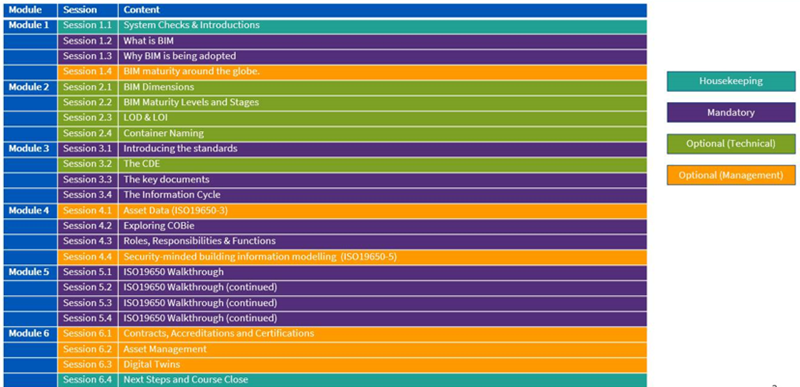Streamlining Autodesk Deployments: How CQi Simplifies the Installation Process
For many organisations, Autodesk software is mission-critical — used daily across design, engineering, and construction teams.

Since joining Symetri in 2013 I have been leading our BIM and Digital Management education sessions. It is one of the most enjoyable engagements and experiences in my working life, which also extends to my support at various Universities as a lecturer or speaker. It is rewarding work sharing knowledge and experience, encouraging debate and discussion, and hopefully providing a firm platform for business improvement and change across organisations from a position of informed knowledge, or indeed assisting personal career development and advancement for all who attend.
A lot of preparation and thought goes into every course we provide at Symetri, and the feedback from customers who attend our technical BIM training and management courses is consistently outstanding and complimentary, which is always welcome and gratefully received. But regardless of positive feedback, on a personal note, every course delivered is analysed, improved, and new learning approaches introduced on a regular basis to support continuous improvement. This is mainly because I am my own worst critique, which is personal trait I wish I could expel but I guess it makes me who I am as an individual.
As a business we constantly investigate industry trends, customer organisation and project workflows to provide the services that enable customers to work smarter. This also extends to our BIM training and education support. I am sure, or hope, some of you have read mine or my colleagues blogs relating to the success of virtual training and education services. For the management courses, it has been a revelation splitting full day in person courses into a number of virtual sessions, resulting in increased knowledge retention, convenience and allowing delegates more time during the day for important fee earning project work. But there is more we can do to support customers, and this is the main announcement within this blog today.
Symetri are increasingly providing BIM and ISO 19650 Management training globally, and in order to be successful these have to be regionally appropriate for the local market. This takes a lot of research and understanding, but it also ensures the courses provided are not too UK centric despite the UK’s obvious global influence on many BIM standards and workflows. The result is our BIM and ISO 19650 courses are becoming more modular in nature, with content being swapped in or out to suit the customers’ requirements. For many across the UK, although not the majority, a Fundamentals course may not today be the most appropriate, but there may be some aspects where a refresh is required. A course focused on ISO 19650 workflows may be needed but enhanced by including how to set up the CDE to be aligned to the guidance, or explanation of typical project roles. What we are increasingly offering today is education where the customer selects their own course content, the focus areas, and what is important to their organisation or project. If you do not feel your teams need to know how to manage LOD and LOI on projects due to existing processes and understanding, then this approach allows a course to be configured and focused in different and new areas of learning.
Of course, there is a caveat here that some modules must be mandatory. In our experience providing a clearly defined beginners, intermediate and advance course in management processes does not typically work because everyone signs up to the advance course even though they may not have the pre-requisite knowledge that they would have gained if they had attended the beginners or intermediate courses.
Applying a modular approach also allows for alignment to customers training budgets. We are moving increasingly to 6 x 2hr virtual management training modules which is the equivalent to two days of traditional classroom based training, but by applying a modular approach if only one day of training is required this can be provided within this framework.
So, what does this all look like? The current courses are split into sessions and those already in delivery are depicted below with the mandatory items highlighted in purple, recommended in blue, and optional depending on customer type in grey. You the customer select twelve sessions for an equivalent 1-day course or 24 sessions for an equivalent 2-day course, including the mandatory sessions.
Note: This content is regularly reviewed and updated to align to the latest industry standards and good working practices.
The course modules above are being expanded on a regular basis to align with several initiatives including the UK BIM Frameworks Learning Objectives and CPD Certification requirements.
So, what are the next steps? If you like what we are doing, or would like to recommend a new focus area, do let us know. We welcome all feedback. To arrange a BIM training course or ISO workshop, visit our website here.
For many organisations, Autodesk software is mission-critical — used daily across design, engineering, and construction teams.
Discover how combining CQFlexMon with CQI provides a complete solution for CAD software deployment and monitoring. Improve software efficiency, reduce risk, and streamline your IT operations.
Cybercriminals are always evolving, and so should your defences. This month, we shine a spotlight on three often-overlooked yet critical security concerns that could put your business at risk.
